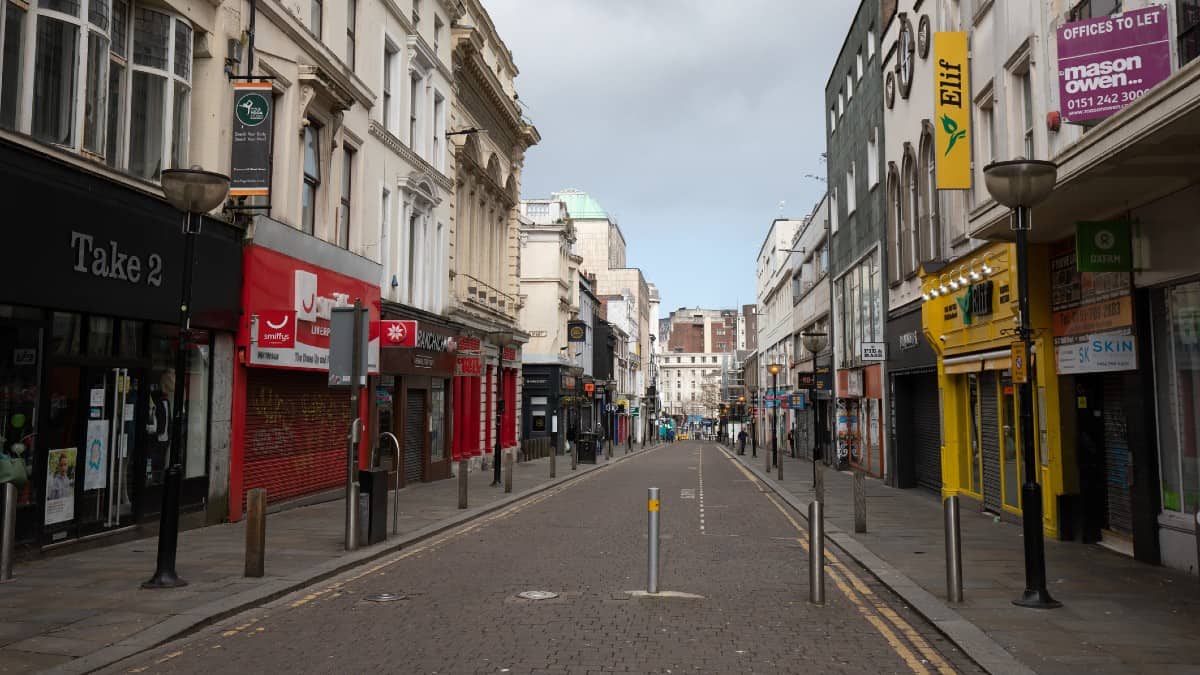The business rates holiday for retail, leisure and hospitality firms will be extended for another three months in England, Chancellor Rishi Sunak has announced.
The year-long relief which was due to expire at the end of March will now continue until the end of June before shifting to a two-thirds discount for the rest of the financial year.
Here is everything you need to know about this business rates holiday extension.
[top_pitch]
What are business rates?
Business rates are basically a tax paid for property used for business purposes. This includes shops, offices, pubs, warehouses, factories and holiday rental homes or guest houses.
Your local council will usually send you a business rates bill in February or March each year. You can also estimate your business rates bill on the gov.uk website.
What is the business rates holiday?
Under the businesses rates holiday, all businesses in the retail, leisure and hospitality sectors regardless of size are eligible for a 100% rates discount.
The government launched this 12-month business rate relief back in March 2020 to help combat the economic fallout from coronavirus.
It was due to end this month, but the chancellor announced as part of the Budget that the rates holiday will now continue until the end of June.
For the six months after June, business rates will be discounted to a third of the normal charge, up to a maximum of £2 million.
Who’s eligible for the business rates holiday?
You’re eligible for the business rates holiday if your property is a:
- shop
- restaurant, café, bar or pub
- cinema or live music venue
- leisure or assembly property (e.g. a sports club, gym or spa)
- hospitality property (e.g. a hotel, guest house or self-catering accommodation)
Do I need to apply for it?
No, you do not need to take any action. Your local council will apply the discount automatically.
What about Wales, Scotland and Northern Ireland?
Business rates are fully devolved to all nations in the UK.
The respective governments of Wales and Scotland have announced their own extensions of business rates holidays for another 12 months.
Northern Ireland is yet to state whether it will also be extending its rates holiday.
[middle_pitch]
What’s the impact on businesses and the economy?
The lifting of all coronavirus restrictions is not expected to happen before 21 June at the earliest. So, the news that the business rates holiday has been extended will come as a huge relief to many businesses in the retail, leisure and hospitality sectors.
The extension of the holiday means that these businesses will now have more time to re-establish their financial stability without the added burden of paying business rates. This could go a long way towards preventing business closures and job losses.
But the holiday has come at a cost. Estimates suggest that the initiative has cost the Treasury £11 billion.
However, some big retail chains that came under heavy fire last year for accepting business rates relief despite continuing to trade have returned around £2 billion of this lost revenue. Chains including Tesco, Sainsbury’s and Asda have already committed to doing so again after the chancellor’s latest announcement.
What other support is there for small businesses?
In addition to the extension of the business rates holiday, the following support has been announced:
- The VAT cut to 5% for hospitality and tourism businesses will remain until September. After that, it will increase to 12.5% before returning to 20% in April 2022.
- A Restart Grant scheme has been launched to help high street businesses reopen after lockdown. Businesses will be able to claim grants of up to £18,000.
- The furlough scheme has been extended to September.
- The SEISS grant scheme has been extended to September and will now include newly self-employed workers who did not qualify for support before.
- A Recovery Loan Scheme that will provide businesses with loans of between £25,000 and £10 million is being launched to support the next stage of Covid recovery.







